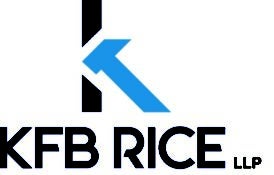Gross Receipts/Business License Taxes Planning Opportunity: COVID-19 ‘Shelter in Place’ Orders
The recent weeks have brought about a series of “shelter in place” orders. San Francisco, Los Angeles, New York, and many other local jurisdictions have ordered workers to stay home. This has required an unprecedented change in work habits, with millions of employees and contractors working from home. The location of where work is performed or “out of jurisdiction payroll,” is a primary determinant of where gross receipts/business license taxes are due. As a result, certain businesses may owe less in gross receipts taxes in 2020 and future years and should consider how to account for and report out-of-jurisdiction payroll.
Gross receipts taxes are often based upon, and are required to be apportioned based upon, where the work is performed. See, e.g., L.A. Mun. Code § 21.49(c)(4); S.F. Mun. Code § 956.2; Seattle Mun. Code § 5.45.081; N.Y. Tax Law § 801; The Phila. Code § 19-2601 (definition of “Taxable Receipts”). A jurisdiction may not tax more activity than takes place within its boundaries. Container Corp. of America v. Franchise Tax Bd., 463 U. S. 159, 164 (1983); see also Allied-Signal, Inc. v. Director, Div. of Taxation, 504 U. S. 768, 777 (1992); Mobil Oil Corp. v. Commissioner of Taxes of Vt., 445 U. S. 425, 441-442 (1980). Historically, by way of example, a company with a headquarters in a metropolitan jurisdiction may typically see 85% of its work performed in that jurisdiction. As a result, 85% of the receipts of the company would be apportioned there. But often these metropolitan jurisdictions are not the same jurisdictions where the employees reside.
Companies with employees living outside the taxing jurisdiction where their offices are located should consider planning now for the impact the COVID-19 pandemic may have on their gross receipts/business license tax filings for 2020 and future years. Where there is a decline in activities occurring within the taxing jurisdiction, impacted companies will be required to apportion less revenue to the taxing jurisdiction, potentially resulting in a lower tax liability. However, some companies may experience the opposite effect (e.g., if a company is located in a jurisdiction that does not impose a business license tax but its employees are required to perform work in a jurisdiction that does impose a tax). Professional services companies, such as accounting firms, marketing companies, software developers, engineering and design firms, financial services companies, and other similar businesses may be impacted the most, among others.
Impacted companies should consider planning now for upcoming gross receipts/business license tax filings. This may include, among other things, properly documenting COVID-19’s impact on the business and tracking the location of the company’s activities throughout the year. Taking these measures now may facilitate proper tax reporting and help mitigate assessments resulting from any future audits.
What Sets Us Apart?
- Over 3 Decades of Experience
- Specialist in taxation through the California Board of Legal Specialization
- Certified as a specialist in elder law through the National Association of Elder Law Attorneys

